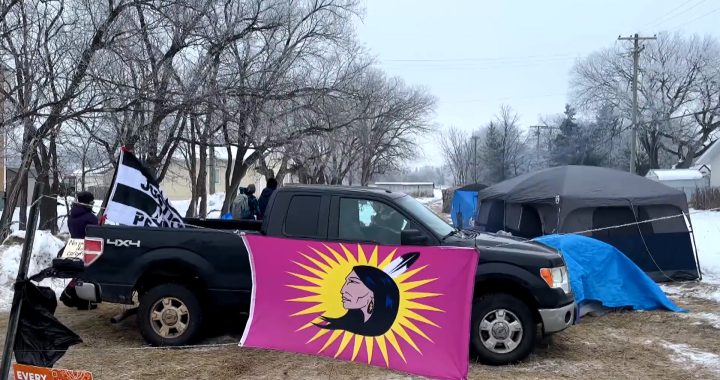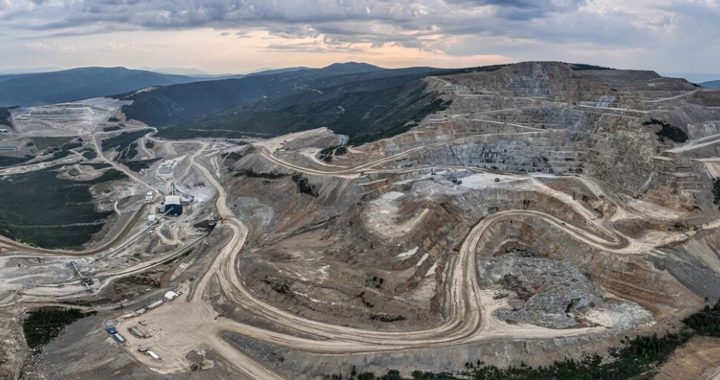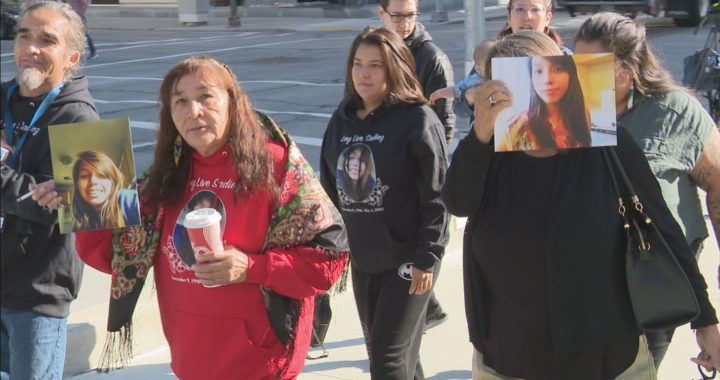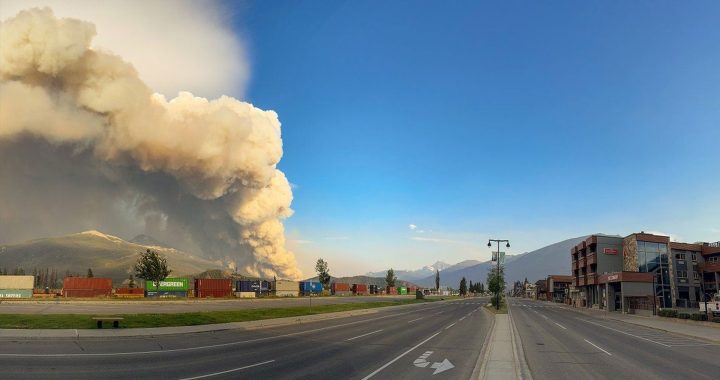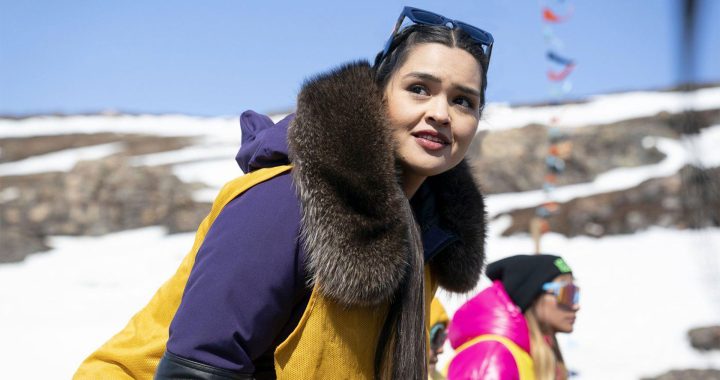
A group rallied in June against the Grassy Mountain coal project. Photo: APTN file
The Alberta government is renewing and expanding its restrictions on coal mining in the province’s Rocky Mountains in response to a strong public outcry and two reports written following extensive consultations on the issue.
The consultations included meetings with many Indigenous Peoples across Alberta, who said they expect to be consulted on future coal development and want their treaty rights respected.
“These submissions also revealed a wide variety of opinion concerned not just with coal development in Alberta but also with past, current and future Indigenous participation in policy making in the province,” the engagement committee said in a report released Friday.
“There were also concerns expressed about Consultation processes with the government of Alberta.”
Energy Minister Sonya Savage told reporters Friday she will maintain a ministerial order that already blocks all coal exploration and development in the region’s most sensitive lands. That order has been extended to cover a much wider swath of the province’s summits and foothills.
Coal development will now be blocked on all the lands originally covered by the province’s 1976 coal policy until land-use plans, which require public consultation and legislative approval, are complete.
The 1976 Coal Policy did not consider Indigenous Peoples.
Read More:
Panel says Grassy Mountain coal mine in Alberta Rockies not in public interest
Thousands sign petition to have feds intervene in Alberta’s coal mining industry
Four coal projects already before regulators can continue with that process if the proponents choose.
“We’ve actually strengthened the 1976 coal policy,” said Savage. “No new activity will be allowed.”
She acknowledged the government’s original move to open those lands – made quietly on a Friday before a long weekend – missed the mark.
“We heard a tremendous backlash from Albertans,” she said. “We saw that as a problem.”
Friday’s announcement came with the release of two reports, the result of nine months of work from a five-member panel that held 67 sessions with more than 70 groups and received 176 written submissions.
The submissions and a survey with about 25,000 respondents have already been made public and show Albertans have major concerns with open-pit coal mining in one of the province’s best-loved and most environmentally sensitive landscapes.
The panel told the government it should be using the land-use planning tools it already has.
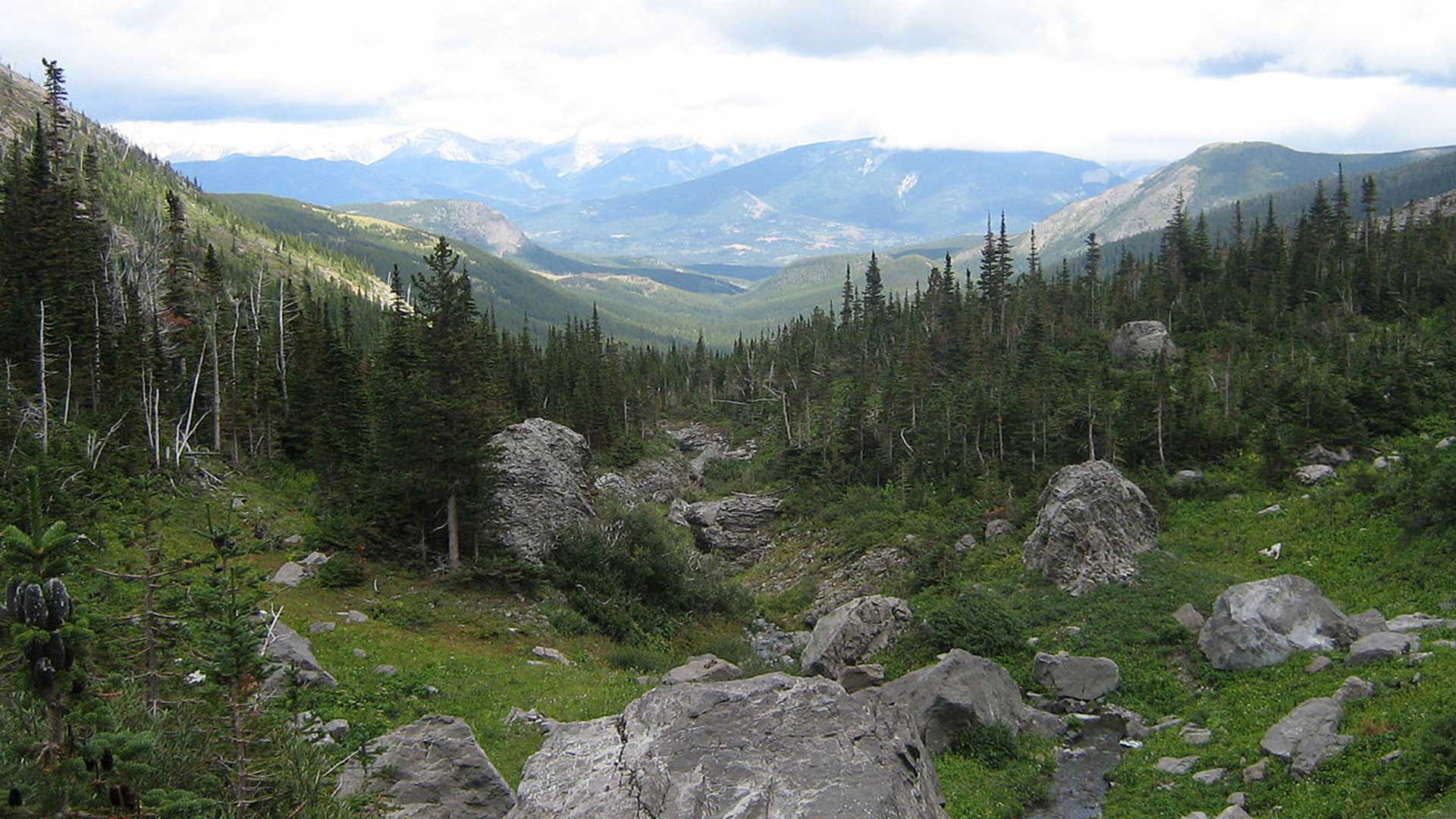
“We didn’t need new legislation or policies,” said panel chairman Ron Wallace.
Savage said her ministerial order will remain in place for all those lands until land-use plans are complete.
But the part of the eastern slopes most affected by new coal exploration is already under such a plan. The South Saskatchewan Regional Plan, which has been adopted by the legislature and is legally enforceable, says water in the region is already fully allocated and disturbances from roads and trails are over environmental thresholds.
That plan must be reviewed by 2024.
Savage added that consultation panel also revealed that Albertans have come to distrust the province’s regulatory system. Savage said that will be addressed, although she didn’t say how.
“We have heard concerns loud and clear and will work to improve public trust,” she said.
Coal mining in the Rockies has been a hot topic in Alberta for two years, ever since the United Conservative government revoked the policy that had protected those summits and foothills since 1976.
Thousands of hectares were quickly leased for exploration, but a public outcry forced the government to halt those activities and pause lease sales until the panel reported.
Indigenous Peoples expressed concerns about the environmental impacts of coal mines, their potential to reduce Indigenous access to traditional lands and scepticism about the results of reclamation following coal mining, added the engagement committee.
“There was a broad consensus that cumulative effects affecting Indigenous communities need to be considered for coal mines.”
With files from Kathleen Martens




